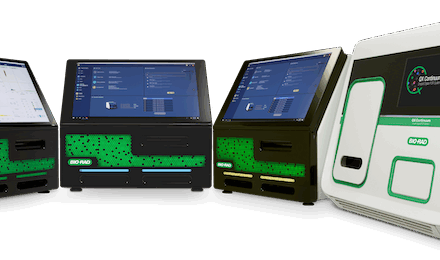Mission Bio, a provider of high-throughput single-cell DNA and multi-omics analysis solutions, today announced two key improvements to the core capabilities of its Tapestri Platform intended to expand its accessibility and utility in the area of hematologic oncology (heme-onc) research. These new additions to Tapestri will enable researchers to apply single-cell analysis in a wider range of projects than previously possible through the introduction of new ready-to-use panels and a lowered input threshold.
With Tapestri’s expanded capabilities, heme-onc researchers can now access single-cell insights from as few as 20,000 cells while conserving precious samples. Mission Bio is also launching Tapestri Single-cell DNA Published Panels, a new set of pre-designed gene panels sourced from leading investigators in the field covering various indications. These newly available gene panels have powered discoveries across hematological malignancies including acute lymphoblastic leukemia (ALL), and have been featured and verified in peer-reviewed publications, including Blood.
“We are excited to include our ALL panel with the initial launch of Tapestri Single-cell DNA Published Panels,” says Jan Cools, PhD, group leader at VIB, Center for Cancer Biology. “We developed this panel as a sensitive assay to detect clonal architecture and evolution in T-cell ALL, the basis for our study on T-cell ALL published in Blood. We hope the availability of these panels can accelerate single-cell studies for those new to Tapestri.”
Another key addition to Tapestri for simultaneous single-cell DNA and protein analysis is BioLegend’s expanded TotalSeq-D antibodies catalog. Taking these advances together, researchers can now start with a pre-designed heme-oncology panel or customize one to fit the needs of a specific project, connect genomic data to a broader array of phenotypes, and do it all in a smaller sample.
“Researchers have been using the Tapestri Platform to make strides in hematologic oncology research, with breakthrough applications in therapy resistance and measurable residual disease,” says Yan Zhang, CEO of Mission Bio. “We are thrilled to lower the barrier to entry with a lower input threshold and expanded menu of ready-to-use panels and antibodies that will more easily enable single-cell multi-omics insights and advance critical research.”
Featured Image: Mission Bio has added two new additions to its Tapestri analyzer, which will enable researchers to apply single-cell analysis in a wider range of projects than previously possible through the introduction of new ready-to-use panels and a lowered input threshold. Photo: Mission Bio





